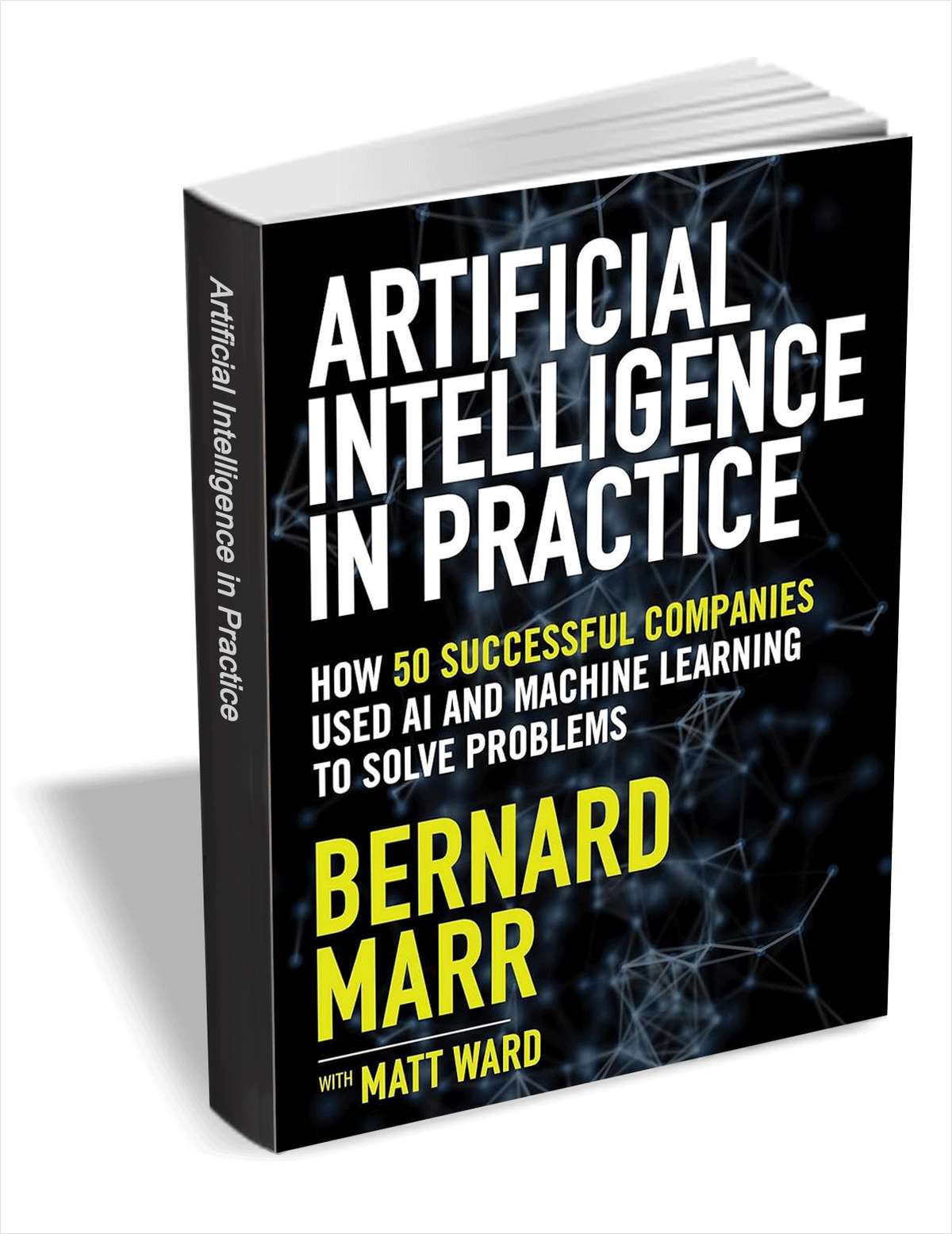
How AI is changing the telecoms industry [Q&A]
The transition to cloud and SaaS use, along with the recent move towards remote and hybrid working, has placed increased pressure on the telecoms industry. At the same time, it has unlocked a significant opportunity for telcos, as remote work has placed a premium on services like fiber and broadband.
Increased data volumes place additional demands on infrastructure and drives up costs. We talked to Anthony Behan, managing director for communications, media and entertainment at Cloudera to discuss these developments and how artificial intelligence is helping telcos to adapt.

Microsoft is finally updating Sticky Notes for Windows 11 -- expect an AI upgrade
Sticky notes, both virtual and physical, remain incredibly popular. Since Windows 10, Microsoft has had its own app called, funnily enough, Sticky Notes -- an app that had not been updated in years.
But this is about to change; Microsoft has issued a notice that users should "stay tuned for some of our biggest announcements yet". The company is yet to provide details of just when we can expect to see the updates, and has said outright what it NOT going to be -- but we can take a decent guess at what might be.

Get 'Artificial Intelligence in Practice' (worth $24) for FREE
Artificial Intelligence in Practice is a fascinating look into how companies use AI and machine learning to solve problems.
Presenting 50 case studies of actual situations, this book demonstrates practical applications to issues faced by businesses around the globe. The rapidly evolving field of artificial intelligence has expanded beyond research labs and computer science departments and made its way into the mainstream business environment.

Securing the world of tomorrow: Anticipating the IT security topics of 2024 and beyond
With the traditional workplace changing beyond recognition at the start of the decade, we saw the most significant changes to the IT security landscape last year; with the wider implementation of artificial intelligence (AI), stronger authentication practices, third-party data breaches, end-to-end encryption, and the Online Safety Bill to name a few. In this time, cyberattacks have advanced exponentially in sophistication and regularity, with IT cyber defenses struggling to keep up.
Thanks to increasingly large supply chains, small to medium-sized enterprises (SMEs) who once thought they were beyond the ‘crown jewel’ targets of large enterprises, are now struggling to defend themselves in the face of more frequent and sophisticated attacks due to smaller budgets and a lack of robust security measures.

The coming AI revolution: How leaders will harness its power in 2024
2023 represented a breakthrough year for generative AI, which gained immense popularity for enhancing productivity through instant content creation based on user inputs. However, in 2024, organizations must shift from marveling at generative AI's dazzling technical capabilities to rigorously evaluating its tangible business impact and risk.
Organizations eagerly anticipate AI's transformative potential. Forrester's September 2023 Artificial Intelligence Pulse Survey revealed that most companies are evolving in their approach to AI. More than a quarter are experimenting with the technology, while 33 percent are expanding their existing efforts, the survey found. In light of this heightened interest, here are three critical AI-centric predictions for the coming year:

Navigating the AI landscape: Is your business truly prepared?
Businesses are on the cusp of an era of transformation with the widespread take-up of AI. Many have already invested time and resources in exploring how these tools could bring additional value. For some that may be improving efficiency and increasing productivity, or creating tailor-made customer experiences to increase sales; for others, it could mean developing new product concepts. The list is endless.
AI promises ground-breaking innovation across industries and professions, provided organizations are fully prepared to take advantage of its capabilities. But are businesses anywhere near ready for AI? Or are they in danger of rushing ahead, akin to the early days of cloud technology, and could live to regret decisions made in the race not to miss out?

How to reduce generative AI's risks to data [Q&A]
Generative AI models like ChatGPT are creating a lot of enthusiasm for what they can do for businesses, but they are generating just as much fear over what can go wrong with the data they handle. There is a lack of trust between large companies that have the data and the AI startups that want to use them.
What can we expect to see in the near future? We spoke with Katy Salamati, senior manager of the advanced analytics lifecycle at SAS, to find out.

Microsoft's next big release will be Windows 11 24H2; Windows 12 may not launch until 2025
Anyone holding out buying a new PC because they're waiting for Windows 12 should probably just bite the bullet. While many were hoping -- even expecting -- Microsoft to release Windows 12 in 2024, the latest rumors suggest that it's more likely to be in 2025.
But that's not to say 2024 is a write-off; far from it. Microsoft still has a lot in store for Windows 11 users, and the next big update -- codenamed Hudson Valley -- is thought to be dropping in September. Also known as Windows 11 24H2 ad the Windows 11 2024 Update, this is a major release which will Microsoft continuing to inject AI into the operating system.

2024 cybersecurity predictions: The continued rise of AI and regulation
The last 12 months have been seismic for cybersecurity, with successful hacks and breaches continuing to make front-page news. The task of keeping networks and data safe is an ever-evolving one, with hackers and cybersecurity professionals in a constant state of cat-and-mouse as they try to outsmart one another.
Events of the past year, including the widespread adoption of, and interest in, AI, as well as new geopolitical challenges, have had a profound impact. They provide some clues as to what 2024 might hold.

Emerging technology is creating new fraud risks, but consumer distrust in AI protection grows
ComplyAdvantage has released its annual report, "The State of Financial Crime 2024," focusing on the rising trend of artificial intelligence being exploited for fraudulent activities. The report also reveals that, despite consumer apprehension about AI, many financial institutions are investing in technology to tackle this emerging threat.
According to the report, 66 percent of financial industry respondents view the criminal use of AI as a growing cybersecurity threat, with risks ranging from deepfakes to advanced cyber hacks and AI-generated malware. In response, 86 percent of respondents reported that their companies are investing in new technologies. However, only 53 percent prioritized explaining their AI usage to customers.

Keeping AI data and workloads secure and accessible
AI is already revolutionizing whole industries and professions. New applications and projects appear regularly across every sector, limited only it seems by the boundary of our own inspiration. That means that AI workloads will be critical to organizations across the board; the question is: how can we ensure AI applications are stable, secure and accessible?
Many companies depend on the trusted backup to ensure fail-safety and security against data loss and outages. From a data protection perspective this makes sense, however, backups aren’t best suited to business continuity and disaster recovery (DR), particularly for the most important data and workloads, such as AI.

The EU's AI Act: Good regulation, bad regulation or somewhere in between?
History is littered with knee-jerk legislation, enacted with good intentions and often in response to genuine public fear. If you have ever traveled to the USA, you may be familiar with the I-94W Nonimmigrant Visa Waiver form that must be completed before entry. Among a number of questions asked, one is ‘Have you ever been or are you now involved in espionage or sabotage; or in terrorist activities -- Yes or No’. I’m sure many have often wondered whether those actually involved in such activities would be inclined to tick the ‘Yes’ box. This example effectively illustrates the challenges that all regulators and legislators should ask themselves at the outset, namely:
Are we doing this to address the problem or is it just a knee-jerk reaction to placate journalists and voters? (Remember that line from BBC political comedy Yes Minister -- “He’s suffering from Politician’s Logic. Something must be done, this is something, therefore we must do it.”)

Predictions for GenAI adoption in 2024
Generative artificial intelligence (GenAI) entered the public consciousness and debate about one year ago. As a science, it goes back several years but as an applicable piece of software, it is very much in its infancy.
Text, images, and audio can be generated by GenAI models,but their integration into existing software tools worldwide is still in its early stages. Similarly, the majority of business leaders are only talking about GenAI, with some experimenting through proofs of concepts, while a small minority have deployed initial, and usually specific, use cases.

Will Artificial Intelligence power online trading solutions in the future?
Artificial Intelligence (AI) has become a buzzword in various industries and the world of online trading is no exception. With its ability to analyze vast amounts of data and make predictions, AI has the potential to revolutionize the way we trade online. Or maybe that's not the case at all. The point in fact is that AI has been integrated into various systems across numerous different industries already.
However, using AI in the financial market, especially, in trading stocks, bonds, cryptocurrencies and other assets is up to debate. After all, is using AI's machine learning and predictive analysis considered cheating? How is it any different when investors rely on informer insights and leaked documents? The software is just better at processing data than human is.

Microsoft launches Copilot Pro subscription for people willing to pay to supercharge their AI experience
Microsoft continues to throw everything at artificial intelligence, in particular its AI companion Copilot. The company's latest move sees it launching Copilot Pro, a subscription service which gives anyone -- not just businesses and organizations -- access to a more up-to-date and advanced version of the chatbot, including OpenAI's GPT-4 Turbo model.
Designed with "power users, creators and anyone looking to take their Copilot experience to the next level" in mind, Copilot Pro is a $20-per-month attempt by Microsoft to squeeze some money out of AI. The company has also expanded the availability of Copilot for Microsoft 365 to more commercial customers.
